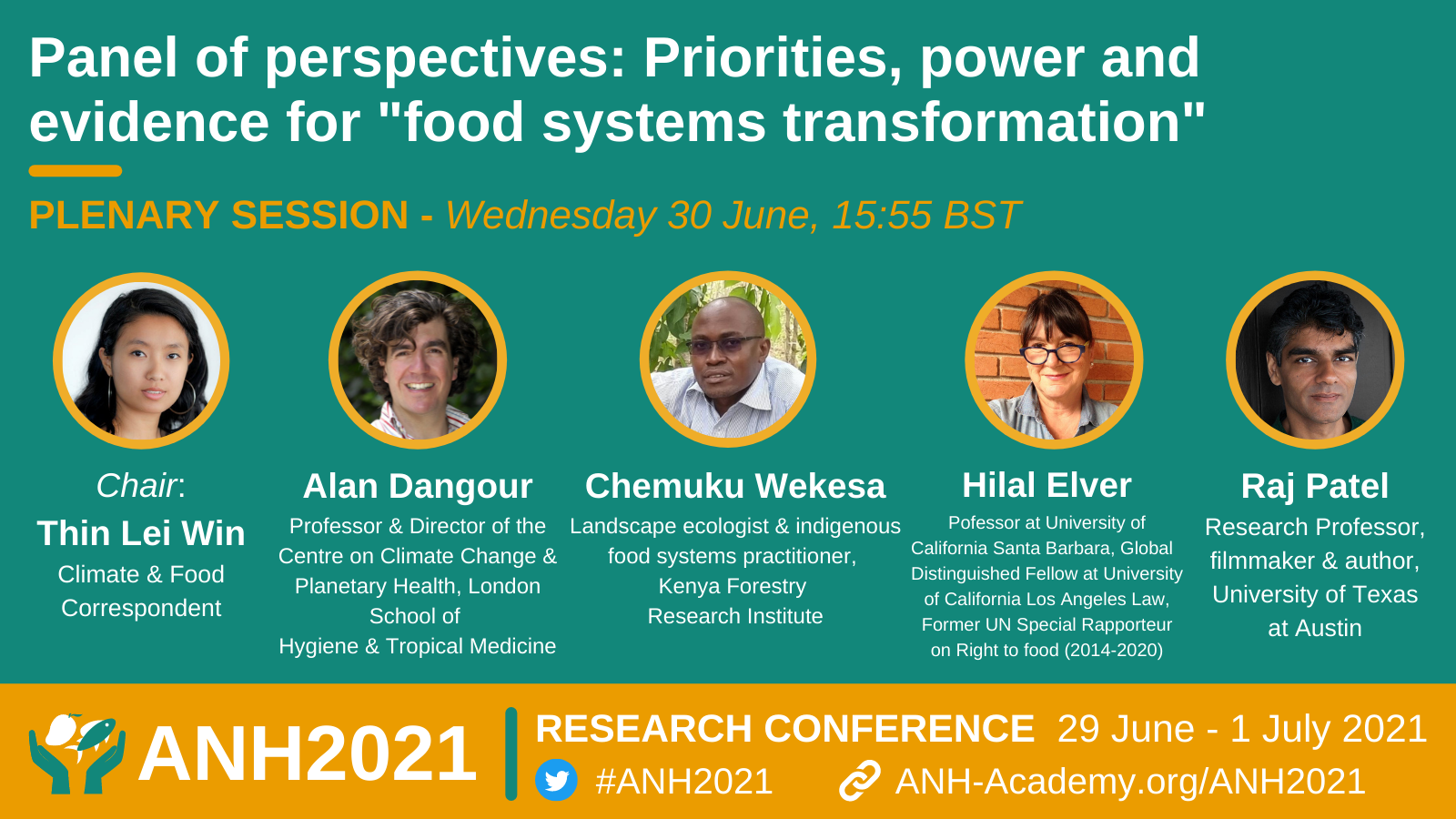Amid the interlinking pressures of the COVID-19 pandemic, persistent global malnutrition and the climate emergency, 2021 is host to a range of global meetings with considerable significance for agriculture, nutrition and health; the UN Food Systems Summit (UNFSS), the UN Climate Change Conference (COP26) and the Tokyo Nutrition for Growth (N4G) Summit.
Arriving first, the UN Food Systems Summit will play an influential role in subsequent discussions at COP26 and N4G, where financial and political commitments are expected to be pledged by nation states. Both ambitious and timely, the Summit promises to “launch bold new actions to transform the way the world produces and consumes food, delivering progress on all 17 Sustainable Development Goals”1. However, it has also been the subject of concerns from civil society, rights-based and agroecological groups among others, surrounding the role of big business in shaping ‘game-changing’ solutions for people and planet2-4.
These debates around the Summit may simply highlight diverse pre-existing worldviews among global food system stakeholders, shining a welcome light on inevitable overlaps and divergences alike. But to what extent can these divergent ideas truly co-exist in a global strategy? And how can food system solutions be consistently underpinned and re-evaluated by contextually appropriate and robust evidence?
For a true evidence-based agenda to thrive and translate to impact, it is imperative to redress the imbalance of research capacities given the longstanding neglect of equitable partnerships; to ensure that bold actions go beyond aspirational statements, academic and ideological stances to interrogate ethics and conflict of interests. 2021 is an opportune time to address these imbalances, but critical questions remain, such as:
- What types of knowledge and evidence are guiding food system agendas, and what should ‘transformation’ look like?
- What outcomes must be pursued to ensure that food systems deliver for people and planet?
- How can these outcomes be achieved and measured in an equitable and sustainable way?
- Who is involved in research priority decision-making? And how can these dynamics be better understood?
To explore these and more, we invite you to participate in an ANH2021 plenary session featuring speakers from a range of different perspectives. This special session seeks to stimulate inclusive and constructive community debate around how to achieve the shared goals of improving food systems and their impacts on diets, livelihoods, human and planetary health.
Active and diverse participation is very much welcomed!
Session chair:
Thin Lei Win, Climate and Food Correspondent
Speakers:
Check out our ANH2021 social media toolkit for each speaker's Twitter handles (go to the "Social Media Toolkit" tab).
- Alan Dangour, Professor in Food and Nutrition for Global Health & Director of the Centre on Climate Change and Planetary Health – LSHTM
- Chemuku Wekesa, Landscape ecologist and indigenous food systems practitioner - Kenya Forestry Research Institute
- Hilal Elver, Research professor at UCSB, and Global Distinguished Fellow at UCLA Law, Resnick Center for Food Law and Policy. Former UN Special Rapporteur on Right to food (2014-2020)
- Raj Patel, Research Professor and author - University of Texas at Austin
1. United Nations. Food Systems Summit | United Nations. (2020).
2. CSM. CSM Letter to the CFS Chair on Food Systems Summit - Csm4Cfs, Civil Society and Indigenous Peoples’ Mechanism for relations with the UN Committee on World Food Security. http://www.csm4cfs.org/letter-csm-coordination-committee-cfs-chair/ (2021).
3. Canfield, M., Anderson, M. D. & McMichael, P. UN Food Systems Summit 2021: Dismantling Democracy and Resetting Corporate Control of Food Systems. Front. Sustain. Food Syst. 5, 661552 (2021).
4. The UN food systems summit will consider all stakeholders’ interests | Letters | The Guardian. https://www.theguardian.com/global-development/2021/mar/09/the-un-food-….








